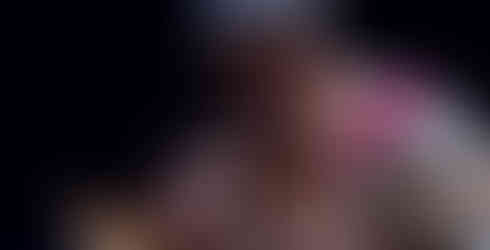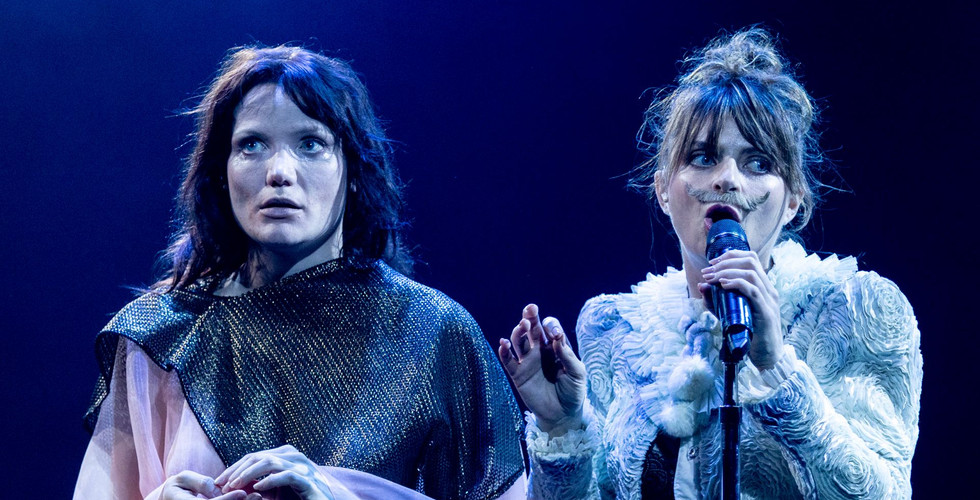The Master and Margarita - Belvoir St Theatre (NSW)
From the book by Mikail Bulgakov
Reviewed by Juliana Payne
Belvoir Street Theatre, Sydney
Playing until 10th December 2023
4 STARS
- This sharp, contemporary adaptation expertly honours Bulgakov's satirical and philosophical message in this action-packed work -
From the moment The Narrator of The Master and Margarita addresses the audience at the start of the play with the slightly unnerving “Are you ready?”, we are swept into a multitude of worlds and none of them is a good one. Eamon Flack’s theatrical adaptation of a complex and complicated novel written in Russia during Stalin’s reign enlists an armoury of classic comedic, absurdist, and slapstick techniques that create the arena where the drama plays out. Structured in layers, as a play, within a book, within another play, you’d better read Tom Wright’s dramaturg notes in the program prior to commencement. But fear not, once the action gets going, it’s really just a matter of allowing yourself to be swept along without worrying too much about it. It moves from intimate love scenes to madcap comic chases, from sinister cabaret to deep analysis of the immortality of art. And that’s just the first act.
The cast are the best part; a brilliant ensemble of talent that bubbled and flowed throughout the performance and breathes life into Bulgakov's weird bunch of characters. The portrayal of the enigmatic Woland (Satan) by Paula Arundell is nothing short of mesmerizing, capturing the perfect balance of malevolence and charm. And her voice! How I’ve missed her absence from the Sydney scene. Her three Hench people are a hilariously violent bunch of misfits from a Guy Ritchie film. Gareth Davies, Amber McMahon, and Josh Price create transcendent comedy with perfect timing and wonderful physicality.
Photos by Brett Boardman
The chemistry between the titular characters, played by Mark Leonard Winter and Anna Samson, is palpable, infusing the love story with a depth of emotion that is genuinely moving and thrown into sharp relief by the comedy. The pairing of the master with the Jesus (Yeshua) character tells you something about Bulgakov’s themes: the sacrifice of art in the face of totalitarianism. Marco Chiappi shows off his impressive versatility, as a world-weary Pilate who’s seen it all and is sick at heart, to a brisk Aussie copper invading the stage.
Nick Schlieper’s design gives us the barest of bare sets, with a shining black floor that provided a fuzzy upside-down duplication of all the action on stage. This highlighted the topsy-turvy absurdist themes of a world where all the rules have gone – literally – out the window. Schlieper’s lighting was incredible and almost became a tangible part of the set. The spinning inset is used to excellent effect, adding a dynamism that kept the pacing fast with the frenetic stage action. Which it needed to be, at three hours. There could have been a bit more structural discipline applied which would have negated the need for an interval and thereby retained the tension throughout the production. Still, it moves along at a cracking pace and the longer scenes allow the lyrical language to blossom. Sometimes the dialogue is lost or muffled as the actors turn or move upstage, so hopefully they’ll get on top of the sound, but it’s not a big issue.
It moves from intimate love scenes to madcap comic chases, from sinister cabaret to deep analysis of the immortality of art. And that’s just the first act.
One of this adaptation’s standout elements is its commitment to Bulgakov's satirical and philosophical messages. The biting social commentary and existential themes are expertly woven into the narrative, prompting out-loud laughter even as it leads the audience into deeper introspection. The clever modernisation of Bulgakov's wit and very black humour adds layers of complexity to the production, making it a rich and thought-provoking experience.
This sharp contemporary adaptation is a testament to the enduring relevance of Bulgakov's work. With more magic than a Siegfried and Roy show, more nudity than reruns of No. 96, and more dark laughs than a John Waters film, this play is well worth your investment of time, money and attention. There’s some pretty profound insights to be drawn from it as well – what’s not to like?


























